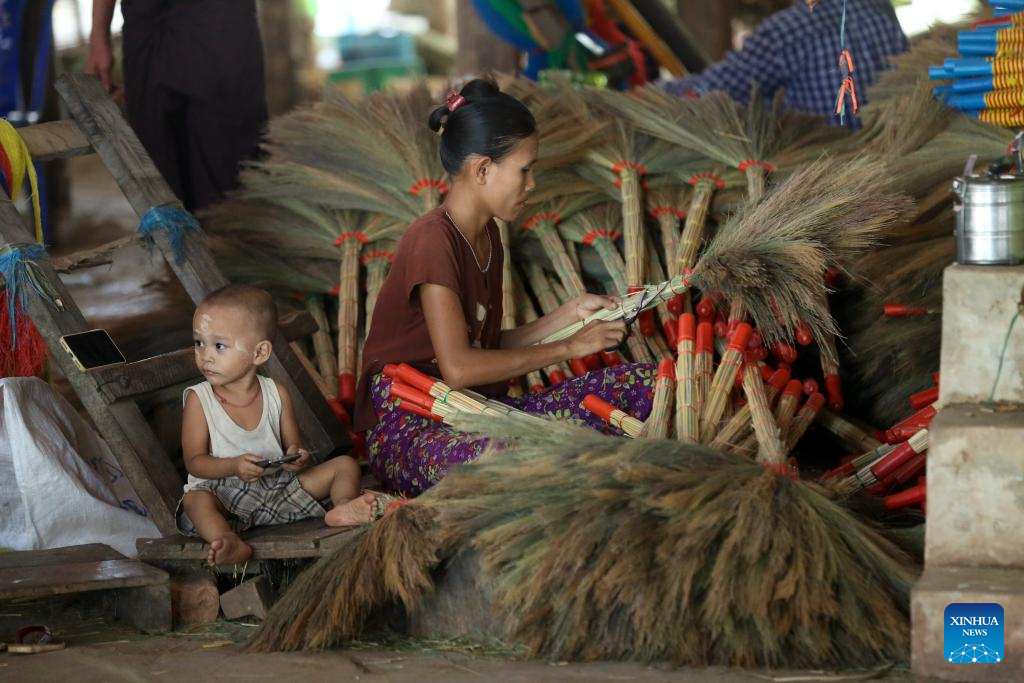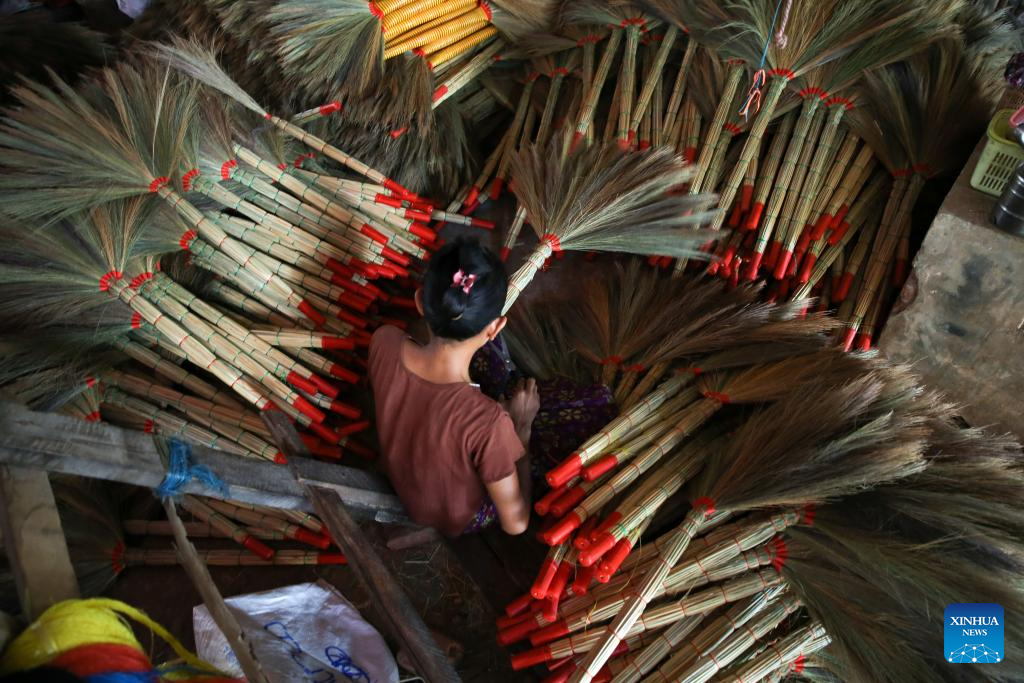
A villager makes grass brooms at a workshop in Hmawbi Township of Yangon Region, Myanmar, May 11, 2024. (Photo by Myo Kyaw Soe/Xinhua)
YANGON, May 12 (Xinhua) -- U Tin Oo, owner of the Win Ngwe Toe grass broom business in Myanmar's commercial hub Yangon, vows to sustain his business of making traditional brooms, which he thinks is a big contributor to the local economy.
"Despite challenges such as rising raw material prices, transportation costs and labor shortages in the Myanmar broom industry, I'm determined to sustain our business for as long as I live, not solely for profit but to ensure its survival and positive impact on the local economy," he told Xinhua on Saturday.
"Our primary aim is not just financial gain but to provide job opportunities and generate income for the local community," he noted.
"Despite having markets in India, Malaysia, and South Korea, business expansion is hindered by limited capital and a shortage of labor," he said.
Htoo Aung Kyaw, 42, a worker employed by the Win Ngwe Toe grass broom business, said: "I've been here since I was over 20 years old, relying on this job to earn my livelihood and support my family."
Ko Maung Lwin, a supervisor at the business, said: "I've been here for over a decade. This job is my livelihood, supporting my family of three."
U Tin Oo, a resident in Kyauk Taung Su Village of Yangon, has been running the broom-making business since 1991.
"In our village, every household can make brooms. Our profits only cover basic needs like food now, so we can't expect the same profit as before."
More than 60,000 broomsticks are exported each month and more than 2,000 broomsticks produced each day, he said, speaking of the production for his business.
Owner of the Kyaw grass broom business, Myo Win, said, "I believe Myanmar's traditional broom will endure despite competition from plastic alternatives because it's an essential household item."
"Unlike plastic brooms, ours can effectively sweep away sand, maintaining its value and importance," he added, explaining on the market demand for traditional brooms.
"Our main export markets are India and Malaysia. Last year, we exported over 60,000 broomsticks, but this year, because we don't have enough workers and materials cost more, we could only manage over 30,000," he said.
"Although facing lower profits due to challenges with raw materials and transportation costs, we're committed to continuing this business, having run it for over 20 years," he added. ■

A villager makes grass brooms at a workshop in Hmawbi Township of Yangon Region, Myanmar, May 11, 2024. (Photo by Myo Kyaw Soe/Xinhua)



